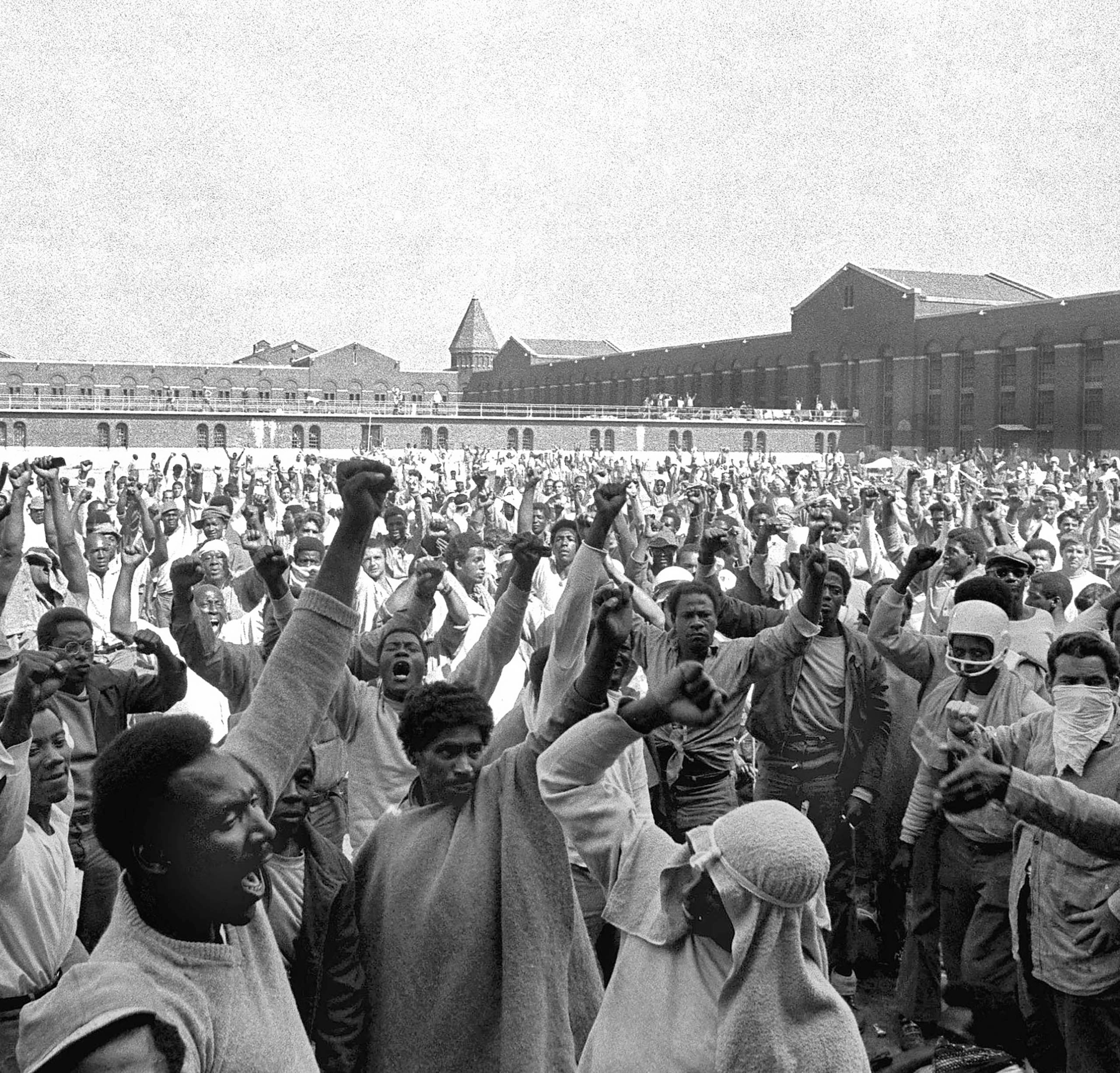Attica Prison Uprising (1971)
Thu Sep 09, 1971

Image: A crowd of nearly all-black inmates with their fists raised during a negotiating session on September 10th, 1971. Photograph from AP.
On this day in 1971, 1,281 out of ~2,200 inmates at the Attica Correctional Facility in New York rioted and took control of the prison, taking 42 staff hostage. The subsequent four-day standoff became the bloodiest prison uprising in U.S. history, with 43 people killed and nearly 100 wounded.
Based upon prisoners' demands for better living conditions and political rights, the uprising was one of the most well-known and significant flashpoints of the Prisoners' Rights Movement.
The rebellion began two weeks after the killing of imprisoned revolutionary George Jackson at San Quentin State Prison. The conditions of the prison were extremely overcrowded, with the population around 2,243 - more than double of the facility's designed limit of 1,200.
Historian Howard Zinn described the conditions at the prison this way: "Prisoners spent 14 to 16 hours a day in their cells, their mail was read, their reading material restricted, their visits from families conducted through a mesh screen, their medical care disgraceful, their parole system inequitable, racism everywhere."
On the morning of September 9th, 1971, fighting broke out between inmates and prison officers, leading to ~1,200 prisoners to control about half of the facility by noon. One officer involved died of his injuries two days later, and inmates took 42 hostages and began drafting a set of demands to be met before they would surrender.
Prisoners met with the press, and a 21-year old speaker, Elliot "L.D." Barkley, delivered a "Declaration to the People of America" the same day inmates seized control of the prison.
After four days of fruitless negotiations and escalating tensions between prisoners and police, Gov. Nelson Rockefeller (who refused to come to the scene in person) ordered that the prison be retaken by force. 39 people, mostly inmates, were killed in a 15-minute assault by state police, including Barkley.
"We are men! We are not beasts and we do not intend to be beaten or driven as such. The entire prison populace, that means each and every one of us here, have set forth to change forever the ruthless brutalization and disregard for the lives of the prisoners here and throughout the United States. What has happened here is but the sound before the fury of those who are oppressed. We will not compromise on any terms except those terms that are agreeable to us. We've called upon all the conscientious citizens of America to assist us in putting an end to this situation that threatens the lives of not only us, but of each and every one of you, as well."
- Declaration to the People of America, Read by Elliott James "L.D." Barkley, September 9th, 1971